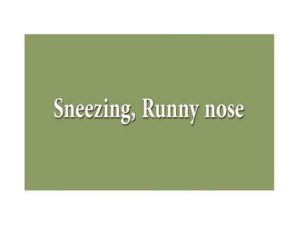Pollen Allergy is one of the most common allergy. Here pollen acts as triggering factor for seasonal allergies.
This seasonal allergy if often known to as “seasonal allergic rhinitis” or hay fever.
During spring, summer and fall months various plants grow. These plants release tiny pollen grains to fertilize other plants of the same species.
Pollens Most common source
Grasses: Grasses are the most common cause of seasonal allergy.
Trees: some species of trees, including birch, cedar and oak, highly allergenic pollen.
Weeds: Ragweed is a main cause of weed allergies. Other sources of weed pollen include sagebrush, pigweed, and tumbleweed.
These tiny pollens are travel by wind. So Pollens are wind pollinated.
Pollen Allergy Symptoms include:
- Sneezing most prominent symptoms
- Runny nose watery in nature
- Stuffy nose or nasal blockade
- Itchy, watery and red eyes
- Itchy nose and itchy throat
- Postnasal drip
- Skin itching
- Coughing mainly dry cough
In addition Pollen allergy can trigger asthma symptoms and can lead to:
- Breathing difficulty
- Tightness in the chest or chest pain
- Wheezing sound
- Trouble sleeping
Pollen Allergy Diagnosis
Symptoms:
Tell your allergist, the symptoms you are experiencing. .
Physical examination: To find out any urticarial lesion in the body and to exclude other cause of similar symptoms.
Investigation-
Skin prick testing (SPT) or Prick skin testing (PST),
- is a widely used
- high quality
- low risk allergy test
- demonstrate immediate IgE mediated allergy.
- Cost effective
- The test should be performed by a trained person.
Allergen specific IgE testing
- Blood testing for allergen- specific IgE
- is usually performed when the skin prick test is contraindicated
- They can also be done in extreme of age. an infant and elderly patients where skin prick test is not appropriate.
Pollen Allergy Treatment
- The most important step is to avoid pollen
- Certain over- the-counter OTC anti allergic
- Prescription antihistamines.
- Nasal corticosteroids spray.
- Leukotriene receptor antagonists
- Decongestants
- Immunotherapy (allergy shots)



